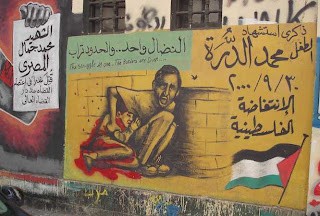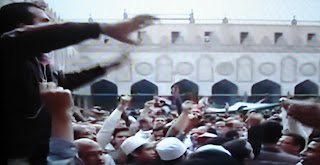-->
I recently returned from a
month long adventure in Egypt and Turkey.
My fascination with Egypt
began early in life. I considered my interest in Egypt completely unremarkable.
Ask anyone with an interest in history or travel and surely Egypt is at the top
of his or her list. I first booked my trip to Egypt 5 days before the Sept. 11th
World Trade Attacks. This resulted in the first ever intervention by my family,
urging me to not go. They knew about my many adventures. How I was stranded in
Ecuador during the border war with Peru. My encounters with criminal gangs in
South Africa. Surviving a hurricane in the Yucatan. Photographing Juarez during
the height of the Murdered and Missing story. Dodgy police and criminal
encounters in Mozambique, Mexico City and well… all over the world.
I was surprised that my
family was at all concerned. After all, I am a self-defense expert, living a
charmed life who always came home safe, if not on schedule. Reluctantly I
agreed to go to Vietnam instead. The country had just recently opened up to
tourism and that interested me. I was overwhelmed by the many offerings of
condolences for the lives lost on 9-11. You see, this was just days after the
attack and G.W. had yet to squander all the goodwill that most of the world
felt towards America. While Vietnam was a great experience, I continuously
regretted not going to Egypt, until I finally went.
In Cairo I had the same
mindset I always have; to keep my opinions of Geopolitics to myself regardless
of how informed, thought out or good intentioned I believed they were. But
Egypt was enjoying the fruits of the recent revolution and apparently they like
Barack Obama and talking about politics is something they were anxious to do. My first hours there four people asked
me if I was “happy that Obama was reelected?” My response of “I didn’t vote for
him consistently elicited silence. Except for the one person who incredulously
asked me “You voted for the other guy?” When I replied, “No, I voted for a
third party candidate.” I was again met with silence but this time with a very
confused look as well. When Nuri introduced me to her husband as “My new
American friend Tony. He voted for a third party candidate”. I started to
realize it was okay to satiate my curiosity about Egyptian politics.
Nuri was wearing a cross
prompting me to ask if she was a Christian and what that was like in Egypt? She
shared that she was a Christian and has never experienced a problem.
“Christians and Muslims get along just fine here” she added. She went on to
share that “the only real problems came from the Orthodox Muslims. Identifiable
by beards and cold glances”.
The protest were smaller than
at the height of the revolution but they were very much happening. Yet another
conflict between Israel and Gaza had just re-erupted after a two-day
cease-fire, the very same day that Morisi had just made yet more repressive
decrees. Giving himself unprecedented, sweeping powers that further infringed
on freedoms. Which caused more resignations and protest. “He has
appointed himself as Pharaoh”
was the word on the street and in the media. I was encouraged to see an
Egyptian journalist, Amed Fathi, speaking freely and being televised stating
“In a country where more than 45% of the population is illiterate, it is easy
to control them with religion”. Religion is used, of course, to control
literate countries too and power grabs mixed with religion only makes “Arab
Spring” struggles even more complicated.
As I passed a group of
tourist I saw a kid point to a Mosque and overheard him
ask, “What are those control tower thingies called?” He was correctly told they
are “Minarets and used to call the faithful to prayer.” I loved the kid’s first
impression. I’m sure he meant “control tower” like he knew from airports but I
related it more to the journalist’s quote of controlling people through
religion. I’ll never view that
piece of Islamic architecture again without remembering that phrase, “Control
Tower Thingy”.
The locals lived up to their
reputation as a warm and peaceful people. They simply want Social Justice and
all the other things that most people want. From Cairo to Luxor to the Red Sea
area, I found the people friendly, patient and all equally eager to discus “The
Revolution”. And President
Morsi surely had it coming. Even
the name “Muslim Brotherhood” leaves out women and non-Muslims. He manipulated
the political process. He packed the body that developed the constitution with
ideologues with no place or voice for the liberal Muslims, the minority
Christians and the modernists.
President Obama called it a
“transition” not a coup. If it’s a “coup” we can’t continue to support the
Egyptian military. It’s important to understand that the military plays a
unique role in Egypt. They are involved production and industry that are
private in other countries and would support a real democratic government, as
long as they keep their power and position. And their leaders, unlike many
under their command, were trained in the West and remain more secular. I find
myself, uncharacteristically, in favor of continuing our financial relationship
with Egypt’s military. I don’t feel the same about most other subsides, foreign
or domestic. For example, I would end corporate welfare, stop junkfood
subsidies and dramatically cut our bloated Defense Budget. I know that their
military buys American weapons with much of the money we give them. Actually the money, 1.6 Billion, never leaves America. What if that money had been going to humanitarian efforts all these years? Things may be very different by now. And our contribution is dwarfed by the 12 Billion pledged by Saudi Arabia, the U.A.E and Kuwait. They even said they would cover an addition 1.6 Billion if we opted out. So that money is a lot less influential than most people think. Supporting
Americas Industrial War Complex turns my stomach but that is money better spent
than by invasion. Or whatever it is we are contemplating in Syria.
Syria was anther conflict
that was with me on this adventure. I went directly to Istanbul from Cairo as
Syrian bombs were landing over the boarder in Turkey. Turkish officials remain the biggest
losers from the ouster of the Muslim Brotherhood regime. The Egyptian foreign
ministry summoned the Turkish ambassador in Cairo, to protest what it called
blatant Turkish intervention in Egypt’s internal affairs. Ironically, the Egyptians
seem to have heeded P.M. Erdogan’s advice to adhere to secularism, which he
gave them during his much-hyped visit to Cairo last while I was there. The
majority of the Egyptian people are convinced that the Brotherhood model in
Turkey is a threat to them, especially after the brutal crackdowns in Taksim
Square. The fundamental differences between the two countries is Mursi,
apparently wanted to fully implement AKP’s model in just one year, and forgot
that Erdogan’s victories against the army and his secular opponents took 10
years and absolute US support to accomplish.
Egyptians have come to believe that
Mursi was copying Erdogan’s model without regard to the fundamental differences
between the two countries and their peoples. Mursi, apparently wanted to fully
implement the AKP’s model in just one year, and forgot in his haste that
Erdogan’s victories against the army and his secular opponents took 10 years
and absolute US support to accomplish.
Maybe Egypt is a lesson for
what SHOULD happen when a Democratically elected leader lies to get elected and
then fails to govern as promised? Lamentably, America seems closer to becoming
a Plutocracy, than a country that would overthrow a constitutionally bankrupt
leader. We wont even do that using
the ballot box. Evidenced by the disgraceful 57% voter turn out in 2012. In
America only five corporations control 90% of the media so don’t be surprised
if you don’t hear about real discontent in the U.S.A., other than manufactured,
regurgitated talking points from Corporate special interest groups. Maybe that’s why what happened in Egypt
is being called “The feel good coup of the year”? Because it sure would “feel
good” to have some Representative Democracy here at home.


